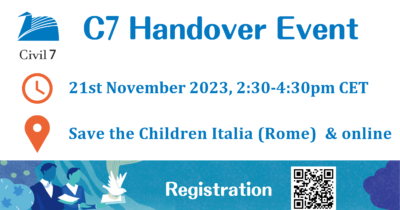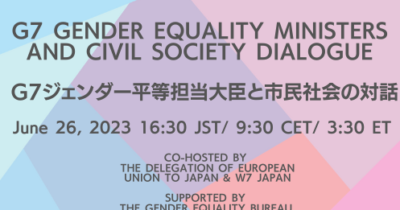The G7 Health Ministers’ Meeting was held at Dejima Messe in Nagasaki City for two days from May 13 to 14, and the following two documents were released as outcome documents.
The G7 Nagasaki Health Ministers’ Communique (Japanese and English)
G7 Global Plan on UHC Agenda (Japanese and English)
In addition, the G7 Finance and Health Ministers’ Meeting was held on March 13 via online connection between Niigata, where the Finance Ministers’ Meeting was held, and Nagasaki, where the following outcome documents were released.
G7 Shared Understanding on Enhanced Finance-Health Coordination and PPR Financing (Japanese and English)
The C7 (Civil7) Global Health Working Group, of which Masaki Inaba, the Co-Chair of Africa Japan Forum serves as co-coordinator, released the “First Statement” assessing these documents from a civil society perspective.
You can access the PDF File of the First Statement (Japanese and English)
The statement points out that while the G7 outcome documents provide a comprehensive overview of contemporary global health issues, it is not clear how the G7 intends to specifically contribute to these issues, and calls for the G7 to mention clearly about its concrete action plan in preparation for the G7 Hiroshima Leaders’ Summit. It also calls for more concrete policies on neglected tropical diseases (NTDs), non-communicable diseases (NCDs), and other key global health issues.
Regarding pandemic prevention, preparedness and response (PPPR), the C7 Working Group also called for the G7 to strengthen responsible efforts to strengthen the manufacturing capacity of MCMs (Medical Countermeasures) and take comprehensive measures to ensure technology tranfer for the developing countries for ensuring global equitable access to MCMs in the situation of emergency.




